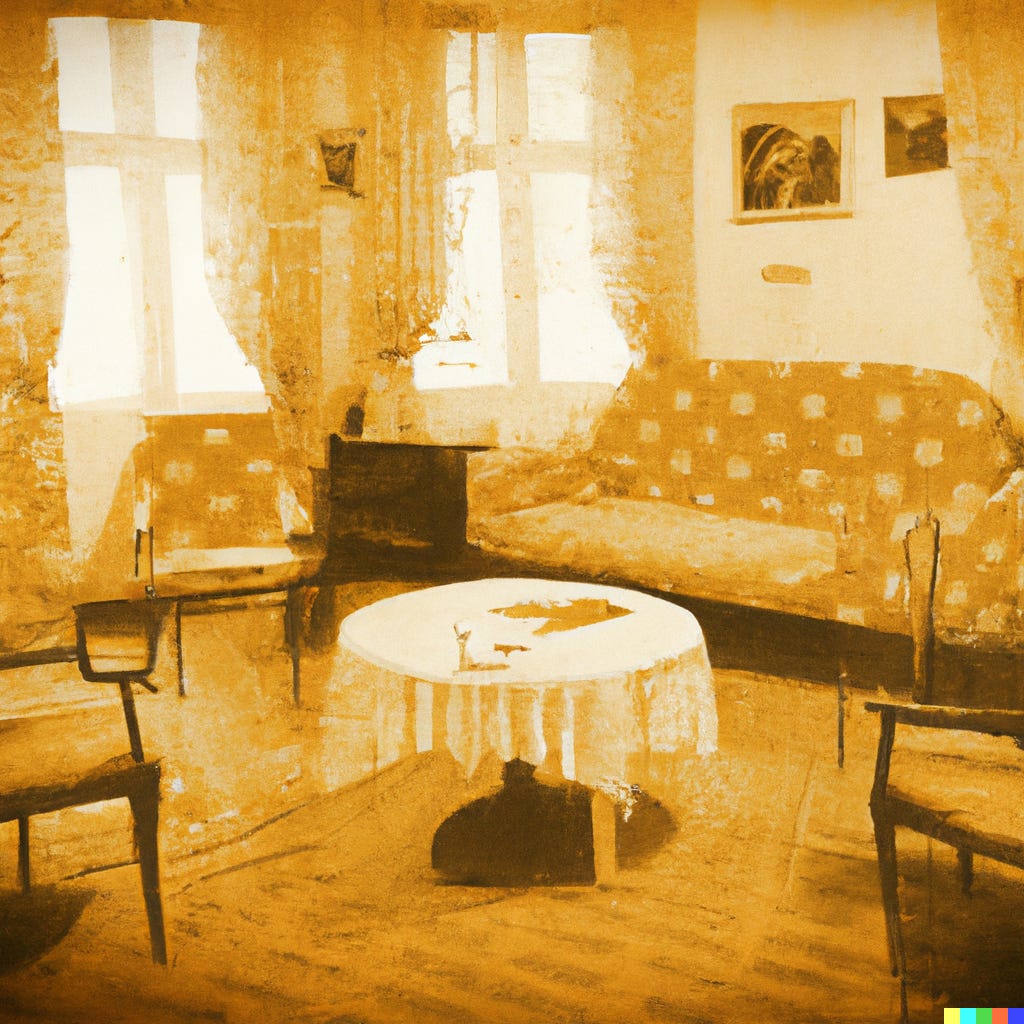“We are constantly producing the past. We are factories for the past. Living past-making machines, what else? We eat time produce and the past. Even death doesn’t put a stop to this.”
— Georgi Gospodinov, Time Shelter

Sometime this year, I was in London and my partner was overseas, for work. I am usually the one in the relationship who travels for work, so I had not yet become accustomed to being the one left behind, with the kitchen and the mail and the prying questions of others.
‘Do you miss him?’ a work colleague asked, her mouth curved in a gently smile. I could not tell if I was being mocked.
I chuckled, wry and short. ‘Despite myself, yes, I do.’
The admission surprised me. It was honest when all the situation called for was small talk. But my colleague met me where I was, with grace. Her face became animated, as if lit up from inside.
‘I love missing my husband,’ she said, her shared confession threading faint strands of intimacy between us. She continued as we descended flight after flight of stairs in this stately London building, her words dislocating my rusted on ideas about longing, missing, yearning. ‘I enjoy the feeling,’ she said. Then, with a slight shrug: ‘If you didn’t miss your partner, surely that would mean something?’
I wondered. Was missing a necessary part of love, romantic or otherwise? Was it important to yearn?
Like the characters in Georgi’s Gospodinov’s brilliant novel Time Shelter, I’ve a complex relationship with longing, nostalgia and the past. Growing up, I believed that missing things, people, places, was undesirable. Noticing an absence and desiring the lacuna be filled, was nothing more than a weakness. It meant I was out of control. Thus, I was ‘merciless towards the past. Because the past itself is merciless.’ (p35)
“…clearly, in order to survive there, in a new place,” Time Shelter’s narrator writes of a Bulgarian emigre he meets in Zurich, “you had to cut off the past and throw it to the dogs. (I could never do that.)”
“That obsolete organ, like some appendix, which otherwise would become inflamed, it would throb and ache. If you can survive without it, better to cut it out and get rid of it; if not, well, then you’d better suck it up.”
I am raised by emigres, an emigre myself. The process of amputating the redundant limb of the past is one I am intimately familiar with, perhaps (in my most most vulnerable moments) even one I crave.
‘But that can’t be good,’ another friend says to me, and again, I wonder.
What is the ‘correct’ relationship to have with the past? What amount of longing is permissible, normal, aspirational?
I often think about my yearning for a free Sudan, a civilian-led Sudan, a just Sudan. I yearn for a Sudan not of my parents era, perhaps of no past era at all, but a Sudan of my imagination. Do I have any right to this sense of longing? I am a child of the diaspora; my yearning is not rooted in reality but in an idea of a place, an sentimental connection with a Past Sudan I have experienced and a Future Sudan of my dreams. Of course, there is the truth of the matter, what is happening on the ground in people’s lives that I do my best to stay connected to, but sometimes I wonder. Am I too attached to the yearning? When it meets the present, will it survive?

I thought yearning, either for a partner in a different city, a best friend separated by an ocean, or a homeland torn asunder, was something to get through. A painful process, a journey to be undertaken with gritted teeth and an eye on the finish line. The ‘real thing’ was what mattered, not the stretching, aching pain of its lack.
But what if that ache is all we have? Can something’s absence be the ‘real thing’? Or if not, just as important?
If all we have in the present is the longing, then in this moment, is that not the realest thing of them all?
What do you think?
Recommendations this week are all for cultural items relating to the themes of yearning, nostalgia and the past.
1. Time Shelter
One of my favourite books of the year, I think. Winner of the International Booker prize, a darkly funny cautionary tale.
“'Time Shelter' tells the story of Gaustine, who starts a clinic for Alzheimer patients and those suffering with dementia to help them recover their memory. In his clinic, each floor is a replica of each decade of the 20th century which transports the patients back in time. It's the responsibility of Gaustine's assistant, who is unnamed in the story, to collection items from the past decades for the clinic. Soon Gaustine's idea and his clinic becomes popular-- not just with the patients but also among people, who wish to escape from present-day reality and live in the past. This results into an unexpected problem where the past begins to affect the present.” (source)
2. Moments Passed by Dermot Kennedy
This song is a personal time capsule. I listened to it on repeat when I first moved to London, over six years ago. I’d walk through the cold, snowy streets of East London with Kennedy’s gutteral tones in my ears, feeling heartbroken by a country I once called home. The version below is not as clean as the studio single, but bangs.
3. BARAF/FAIRUZ by Karpe
Please, please, give this whole video a chance. Karpe is a duo based in Oslo, Norway, and they do these incredible audio-visual performances, their music universally relatable to diaspora kids around the world. I have wept watching this video so many times.
Thank you, as always for reading and supporting my work. Big shout out to this week’s newest paid subscriber: Julie! As always, I am eternally grateful. As a freelancer of almost a decade, income from this newsletter makes the world of difference, and every little bit counts. If you feel like you have the capacity to support my work, do consider upgrading to a paid subscription.
I leave you with a tiktok that brought me joy… ;)
Until next time,
Yassmin








Such good and painful questions. Currently I am thinking about how we can love someone or something, but it may not ultimately be good for us. Do we hold on and keep trying, or let go? Is it better to yearn with or without that person or thing in our life?
Sorry - I mistook Omar Sherrif as the artist. Just going to watch the rest of the concert!